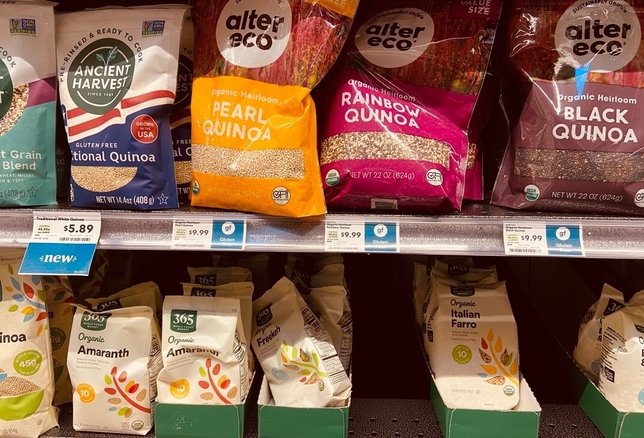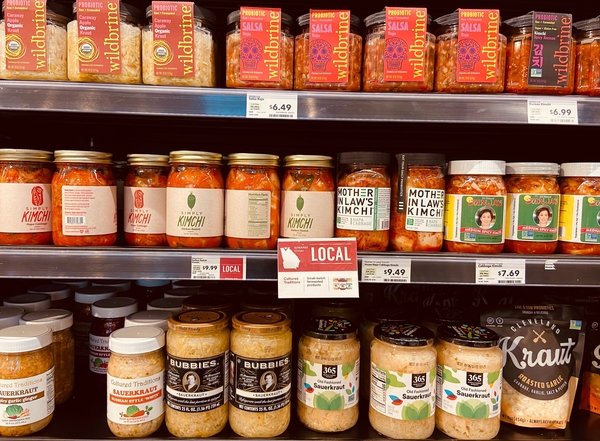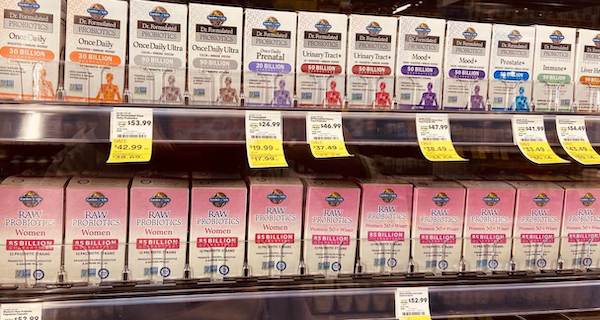If you’ve been following a Keto or Paleo diet, it’s time to kiss it goodbye, because whole grains are a gut’s best friend.
Our gut Microbiome consists of trillions of microorganisms that live in our gut. These organisms influence our risk for obesity, diabetes, heart disease, and many other diseases. Although each of us varies in the makeup of these organisms, what we eat has a direct influence on the composition of our Microbiome. There are things you can do right now to help improve your gut health.
Eat a variety of whole plant-based foods

Eat a variety of plant-based foods, such as fruits, vegetables, beans and legumes, whole grains and nuts, and seeds. The more diverse your diet, the better. One study found that eating 30 different types of plant-based foods resulted in the most robust gut. So don’t get stuck in eating the same foods every day; rather mix it up and add new foods into your rotation. Instead of the usual apples and bananas as a snack, choose mangos or pineapple, and switch rice and beans to lentils and quinoa. Grain bowls are an easy way to add a variety of plants in your diet.
Ditch the refined processed and packaged foods
Refined carbohydrates, such as white bread, white rice, biscuits, flour tortillas, crackers, and baked and packaged goods lack nutritional value and are high in calories, fat, sugar, and salt. Our microbes feed off whole grains and if they don’t get enough, they start eating the lining of your gut which causes inflammation. Replace the refined carbohydrates with more complex carbohydrates such as steel-cut oats, barley, amaranth, millet, Kamut, buckwheat, and so on. These grains are high in fiber and are a feast for good gut microbes.
Add Fermented Foods

Eat more fermented foods such as non-sweetened Yogurt or Kefir, Kimchi, Kombucha, and Sauerkraut. These foods contain live microbes which boost the microbe diversity in the gut and help reduce inflammation. However, make sure you get these foods from the refrigerated section, not from the canned food aisle where the foods are pasteurized and sanitized of all those beneficial gut microbes.
Avoid Artificial Sweeteners
New studies have found that artificial sweeteners alter your gut microbiota causing glucose intolerance, which can cause diabetes. Also, sweeteners may not contain any calories but they also don’t reduce your sugar cravings. If you have the need to sweeten your tea or coffee, use regular sugar, then slowly reduce the amount you use until you only need very little or better yet, none at all.
Exercise
People who exercise have been found to have a greater diversity of good bacteria in the gut which is linked to better health. Try to exercise daily. And this does not just mean time spent in the gym but moving more throughout the day. If you can, try to walk to the post office or walk to get lunch, go for bike rides on the weekend. A study showed that if you allow yourself to be flexible with when and how you exercise, you will be more consistent with exercising.
What About Probiotic Supplements?

You may be surprised that Probiotics are not on the list for improved gut health, which is for good reason. It turns out that only specific probiotic strains have been found to be helpful for specific sets of conditions. Some of these conditions are IBS, constipation, and antibiotic-associated diarrhea. If you are hoping to relieve any of these specific conditions, make sure you look up what strain and dosage are needed to get relief, otherwise, you are wasting your money.
If you found this post helpful but would like a more personalized plan for your digestive health set up a free discovery call with me here.
References:
- Wastyk HC, Fragiadakis GK, Perelman D, Dahan D, Merrill BD, Yu FB, Topf M, Gonzalez CG, Van Treuren W, Han S, Robinson JL, Elias JE, Sonnenburg ED, Gardner CD, Sonnenburg JL. Gut-microbiota-targeted diets modulate human immune status. Cell. 2021 Aug 5;184(16):4137-4153.e14. doi: 10.1016/j.cell.2021.06.019. Epub 2021 Jul 12. PMID: 34256014; PMCID: PMC9020749.
- Suez J, Korem T, Zeevi D, Zilberman-Schapira G, Thaiss CA, Maza O, Israeli D, Zmora N, Gilad S, Weinberger A, Kuperman Y, Harmelin A, Kolodkin-Gal I, Shapiro H, Halpern Z, Segal E, Elinav E. Artificial sweeteners induce glucose intolerance by altering the gut microbiota. Nature. 2014 Oct 9;514(7521):181-6. doi: 10.1038/nature13793. Epub 2014 Sep 17. PMID: 25231862.
- Monda, V., Villano, I., Messina, A., Valenzano, A., Esposito, T., Moscatelli, F., Viggiano, A., Cibelli, G., Chieffi, S., Monda, M., & Messina, G. (2017). Exercise Modifies the Gut Microbiota with Positive Health Effects. Oxidative medicine and cellular longevity, 2017, 3831972. https://doi.org/10.1155/2017/3831972
